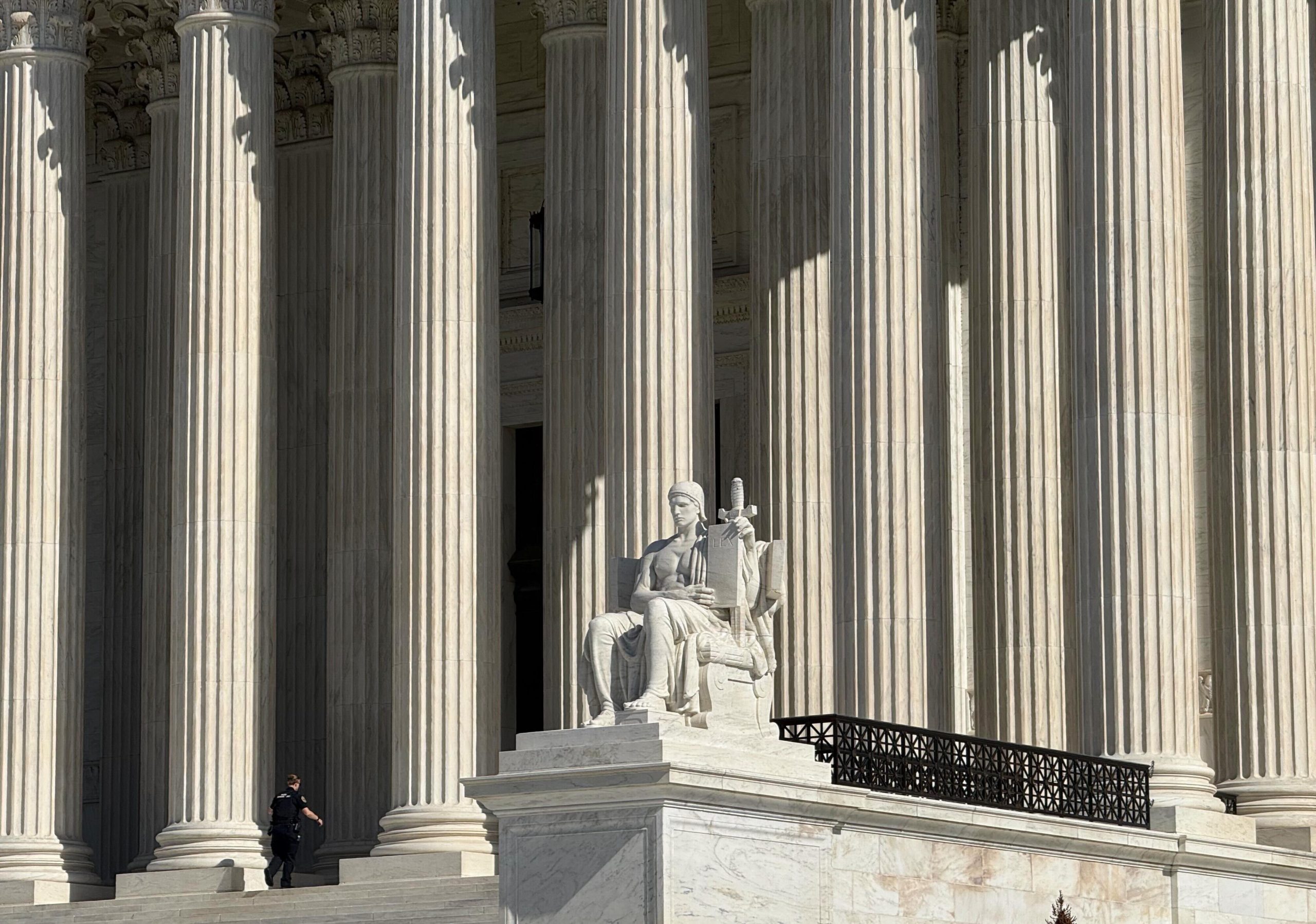Supreme Court allows Trumps New York criminal sentencing to go forward


A divided Supreme Court on Thursday evening cleared the way for President-elect Donald Trumps criminal sentencing to go forward on Friday morning. In a brief unsigned order issued just after 7 p.m., the justices rejected Trumps plea to halt the sentencing proceeding in his New York hush money case, where he was convicted on 34 counts of falsifying business records to hide reimbursements made to adult film star Stormy Daniels.
Four of the courts conservative justices Clarence Thomas, Samuel Alito, Neil Gorsuch, and Brett Kavanaugh indicated that they would have granted Trumps request. Trump would have needed five votes to prevail, which means that Chief Justice John Roberts and Justice Amy Coney Barrett joined the courts three liberal justices in voting to allow the sentencing to proceed.
The trial judge in New York, Juan Merchan, has indicated that he does not intend to sentence Trump to jail time, and he is allowing Trump to appear by video at Fridays sentencing hearing. But Trump sought to have the sentencing put off. He argued that as the president-elect, he is entitled to immunity from criminal proceedings. Moreover, he added, prosecutors improperly relied on evidence of his official acts such as his posts on the social-media platform X, then known as Twitter to obtain his convictions.
Merchan declined to put Trumps sentencing on hold. He contended that Trump himself was responsible for the delays in sentencing. Trump should not now be able to avoid sentencing, he wrote, by asserting that the hearing will take place too close to the inauguration.
After a New York appeals court judge also rejected Trumps request to block his sentencing, Trump came to the Supreme Court on Wednesday, asking the justices to intervene. Citing the Supreme Courts July 2024 ruling in Trump v. United States, in which a majority of the justices held that former presidents have broad immunity from criminal prosecution for their conduct while in office, Trump contended that requiring him to prepare for a criminal sentencing in a felony case while he is preparing to lead the free world as President of the United States in less than two weeks imposes an intolerable, unconstitutional burden on him that undermines these vital national interests.
New York prosecutors urged the justices on Thursday morning to allow Trumps sentencing to proceed as scheduled, telling them that there is no need for the justices to take the extraordinary step of intervening now. Calling Trumps suggestion that he should not be sentenced on Friday because he is the president-elect baseless, they added that the evidence of Trumps guilt was overwhelming, so that a jury would have found him guilty even without the evidence that he now claims was based on his official acts as president.
In its order denying Trumps request to halt his sentencing, the court explained that Trumps complaints regarding the use of evidence of his allegedly official acts could be addressed on appeal. And it added that the burden that sentencing will impose on the President-Elects responsibilities is relatively insubstantial in light of the trial courts stated intent to impose a sentence of unconditional discharge after a brief virtual hearing.
ABC News reported on Wednesday that shortly before his request to block his sentencing proceeding was filed, Trump spoke with Justice Samuel Alito about one of Alitos former law clerks, William Levi, who is seeking a job in the new administration. In a statement, Alito maintained that he had not discussed Trumps request or any other Supreme Court cases with Trump.
Rep. Jamie Raskin, a Democrat from Maryland and the ranking member of the House Judiciary Committee, on Thursday called on Alito to recuse himself. Impartial justice under the Constitution, Raskin said in a statement, demands that Justice Alito hold himself to the highest ethical standards and avoid even the appearance of impropriety.
Alito did not address the recusal question, noting only that (along with Thomas, Gorsuch, and Kavanaugh) he would have granted Trumps request.
This article was originally published at Howe on the Court.
Posted in Emergency appeals and applications
Cases: Trump v. New York
